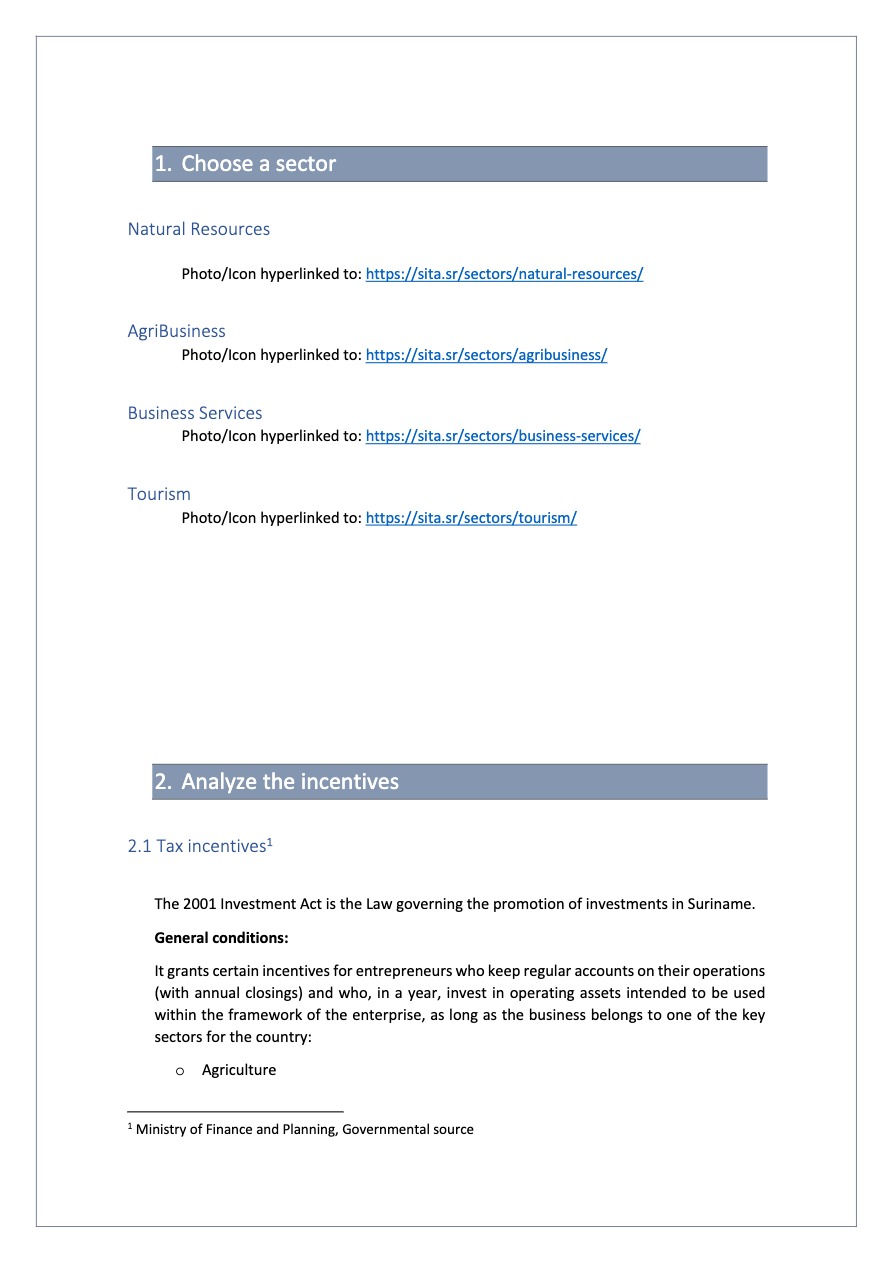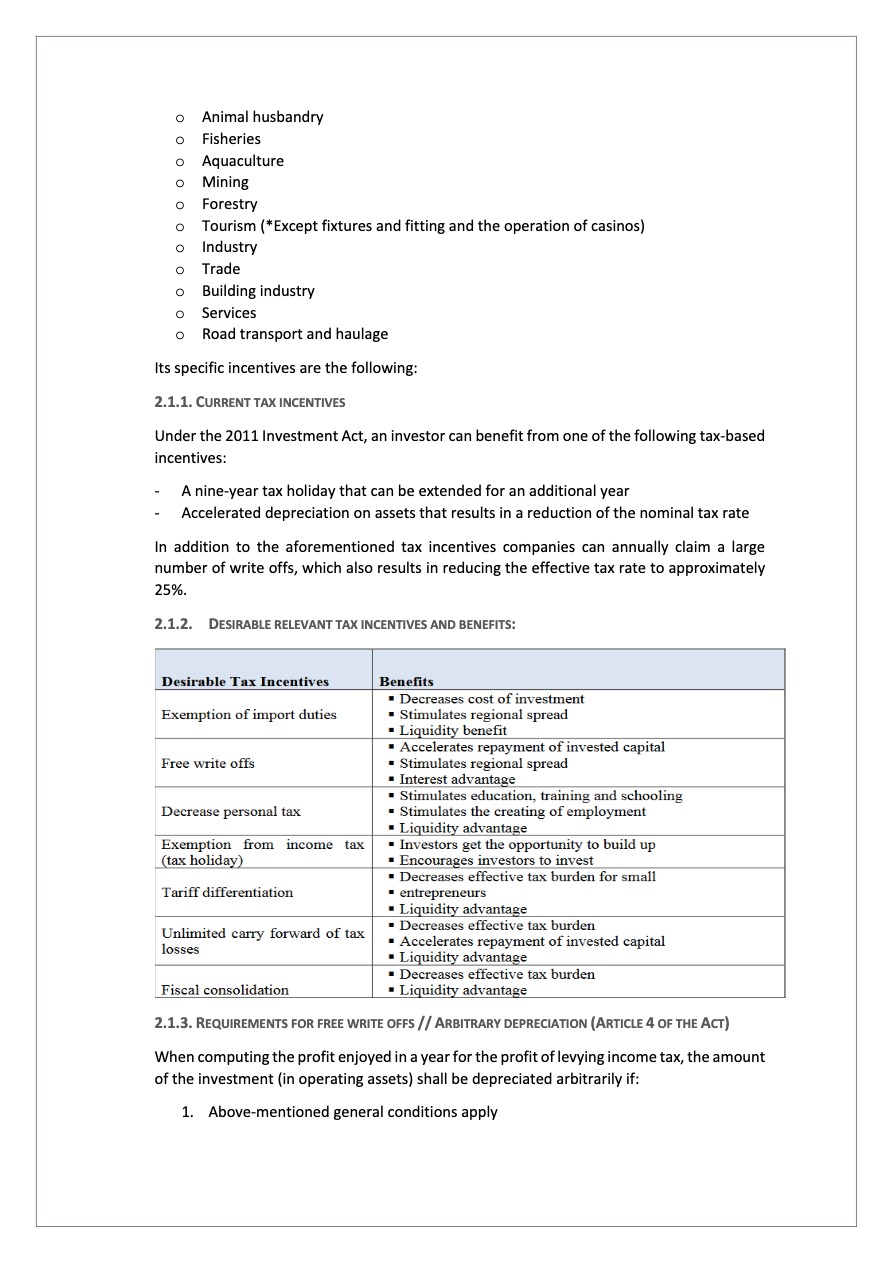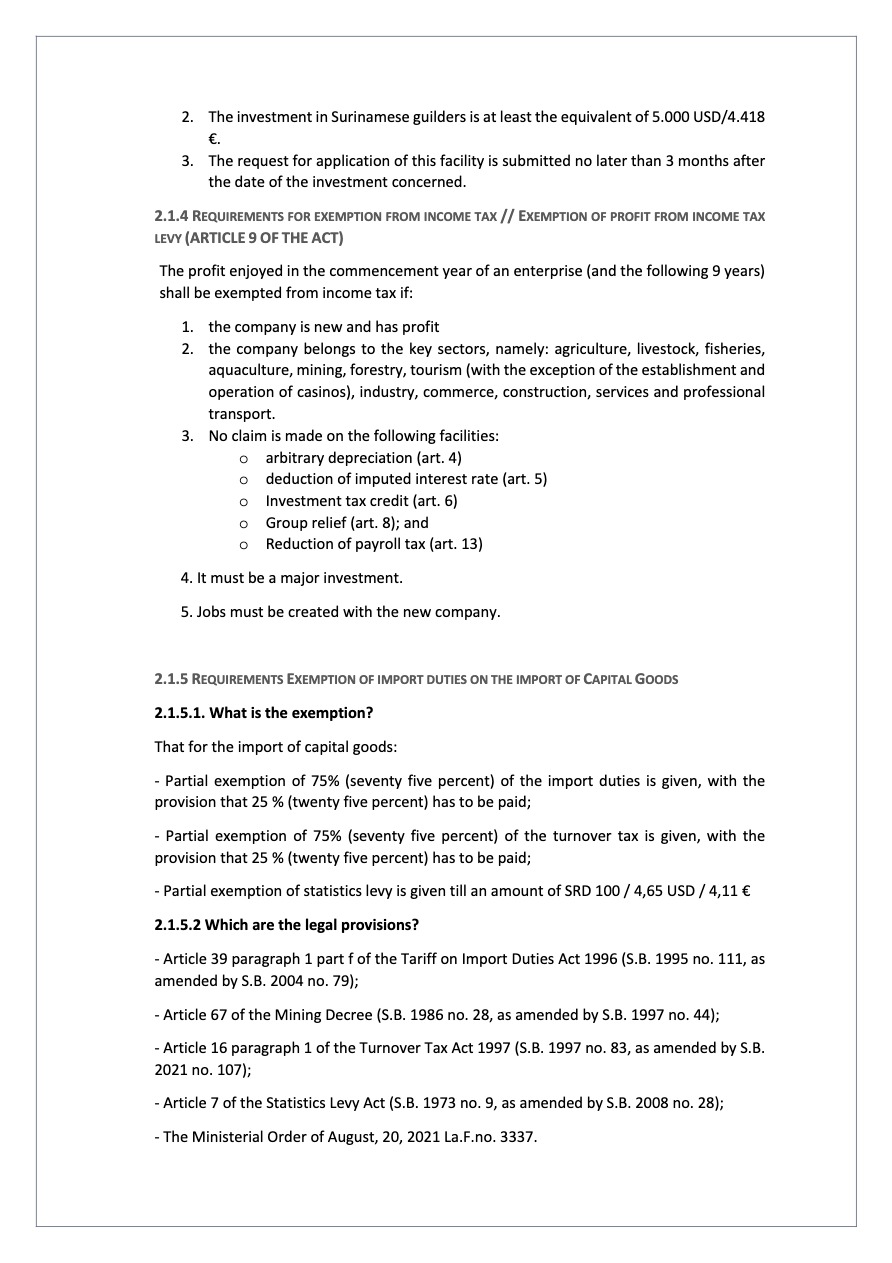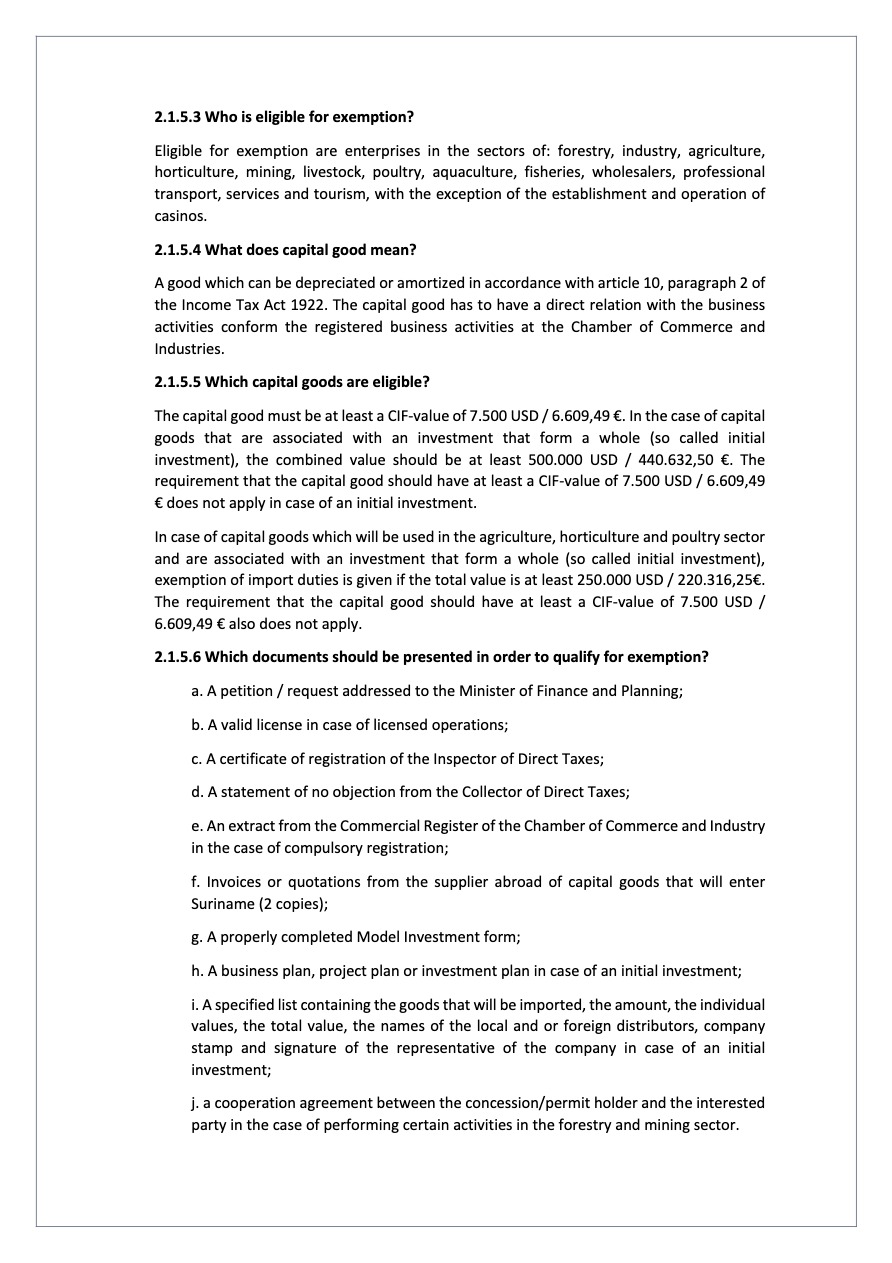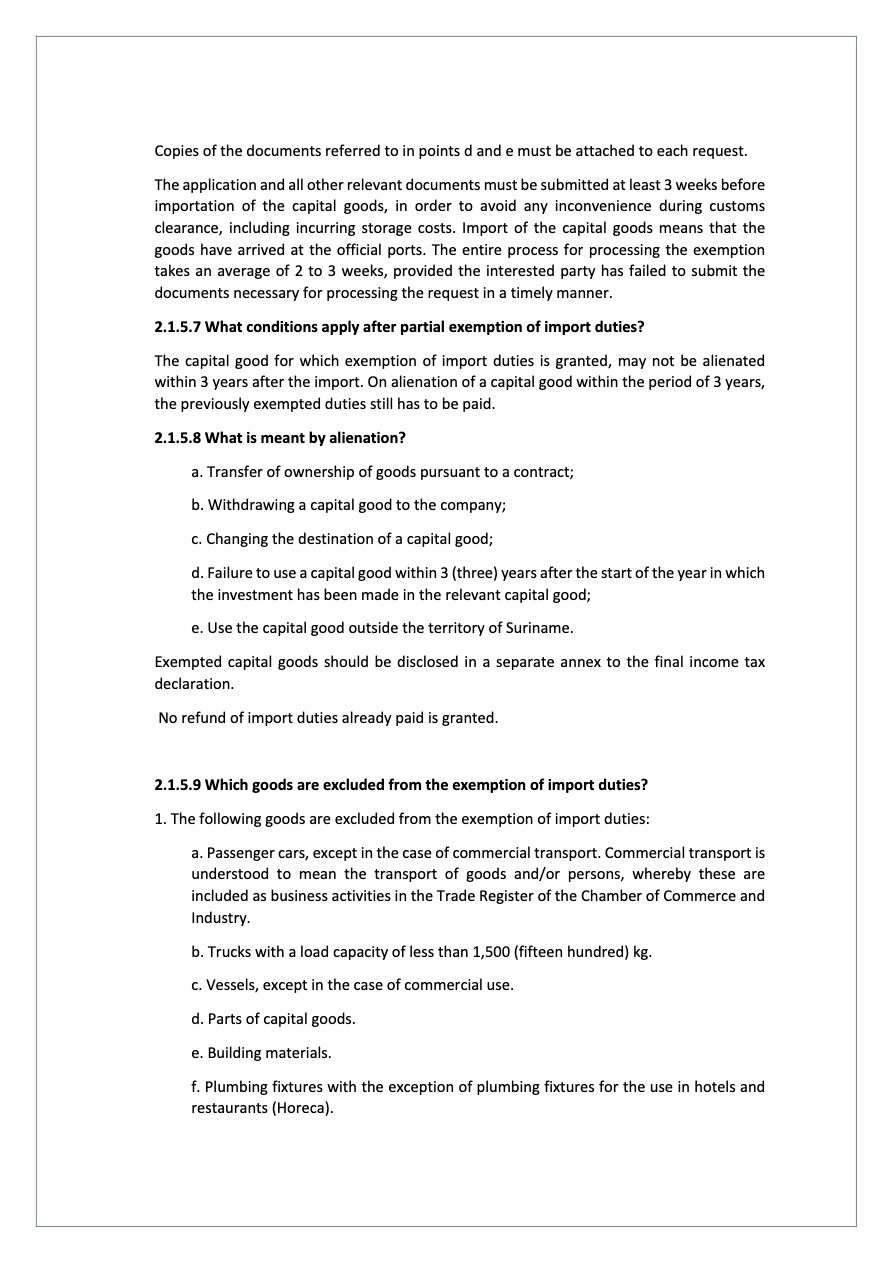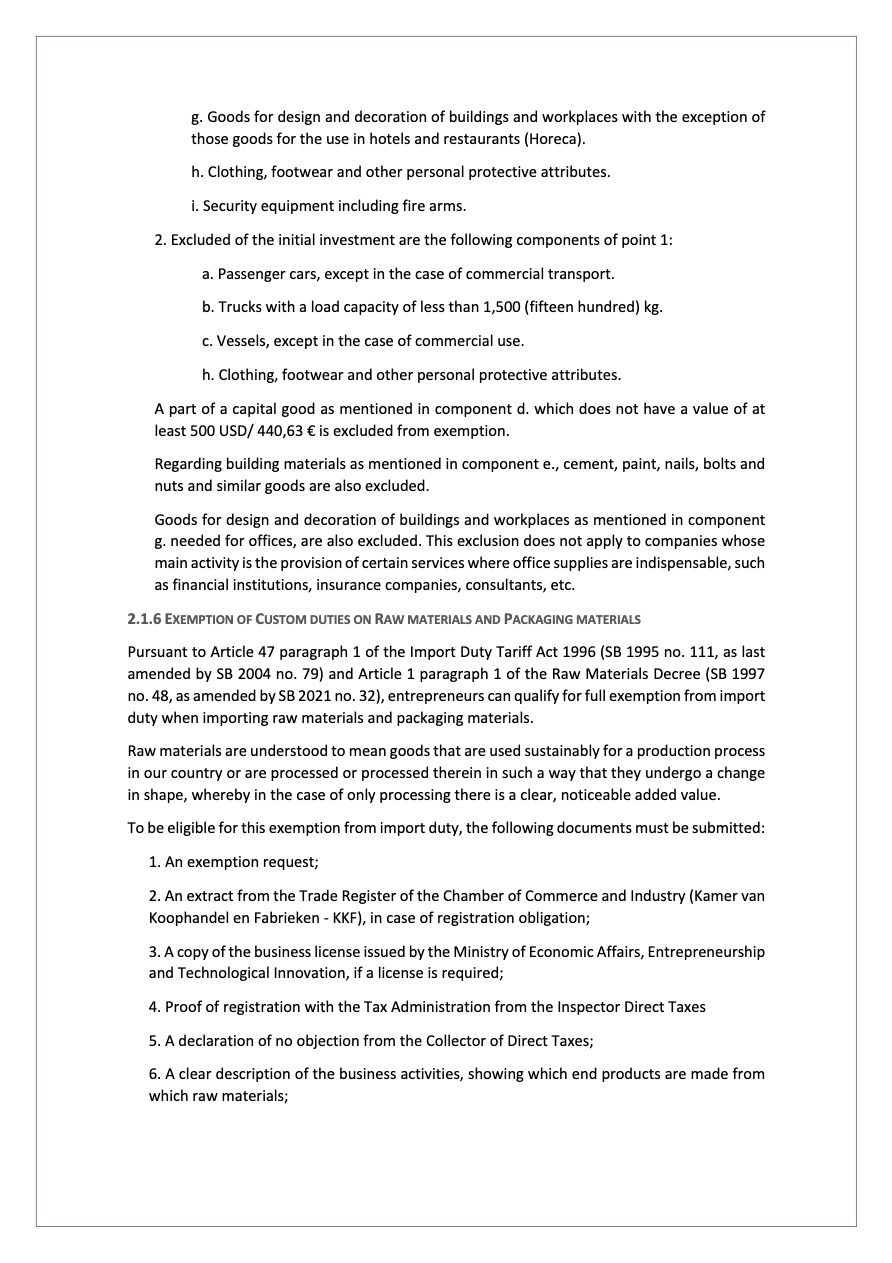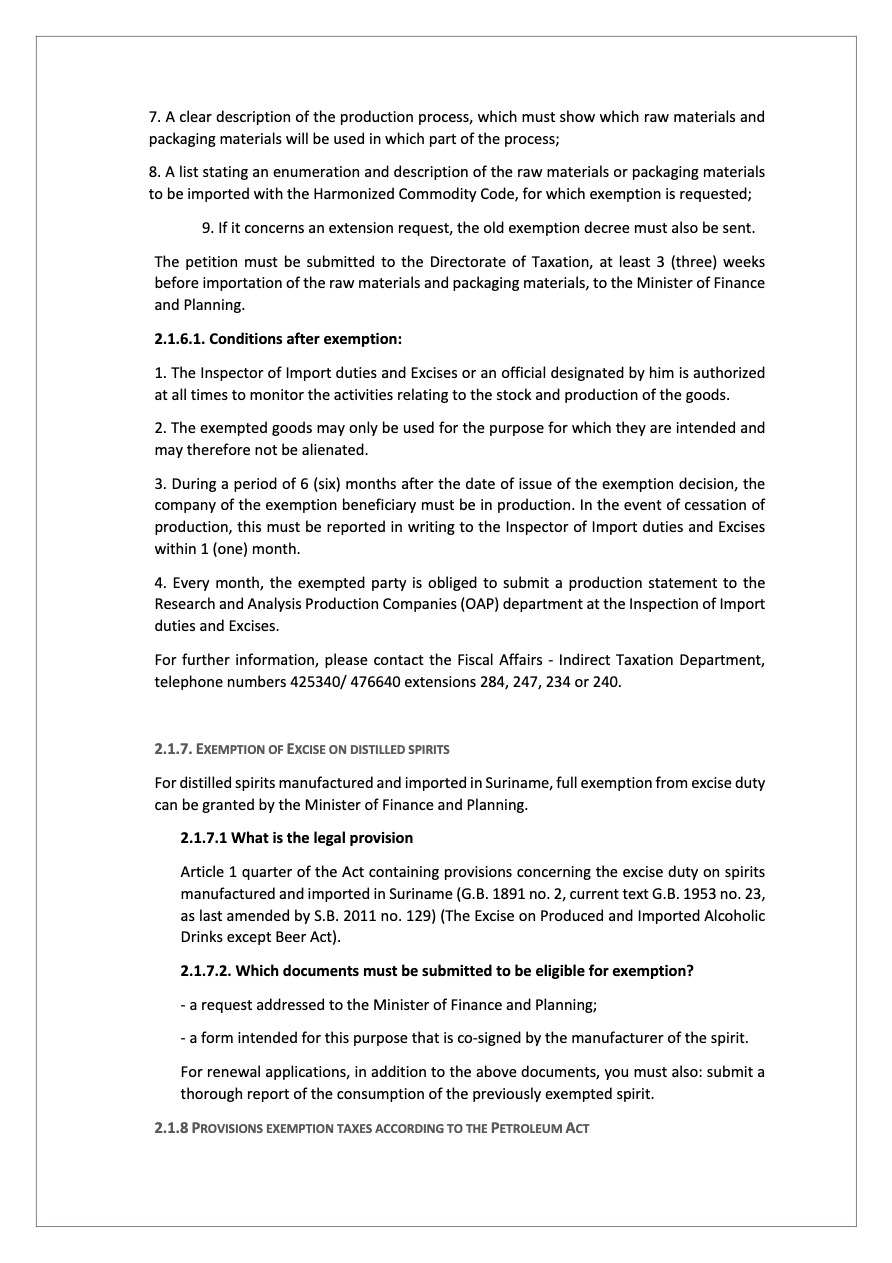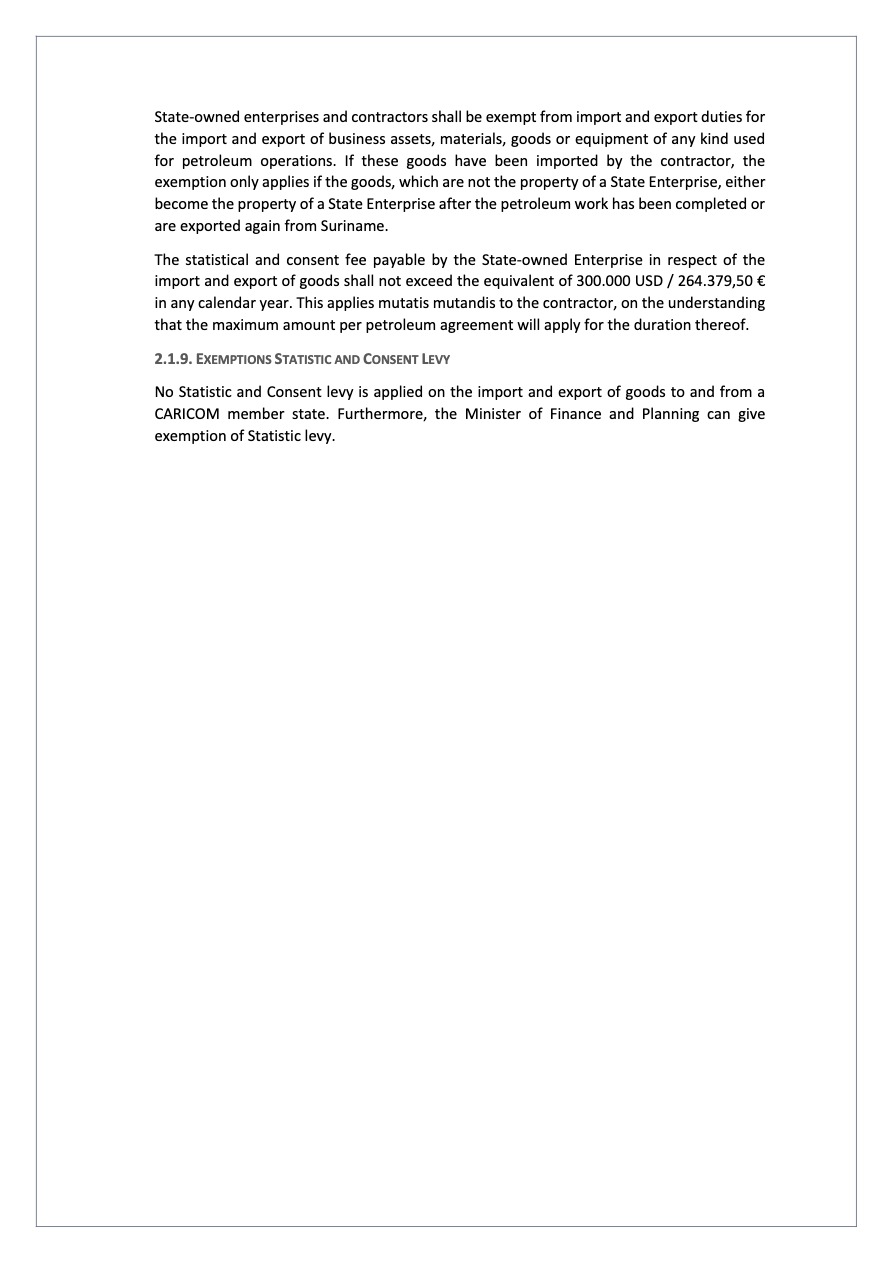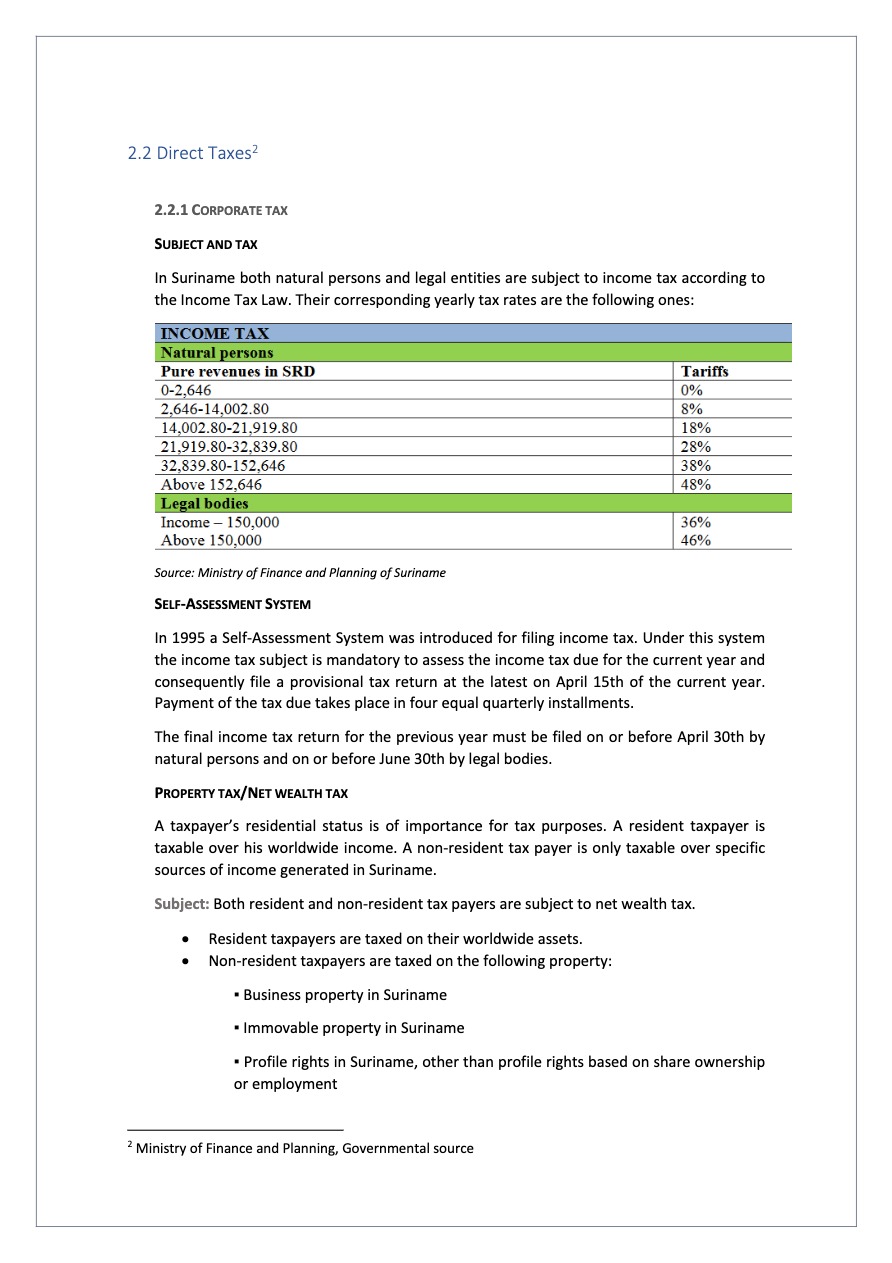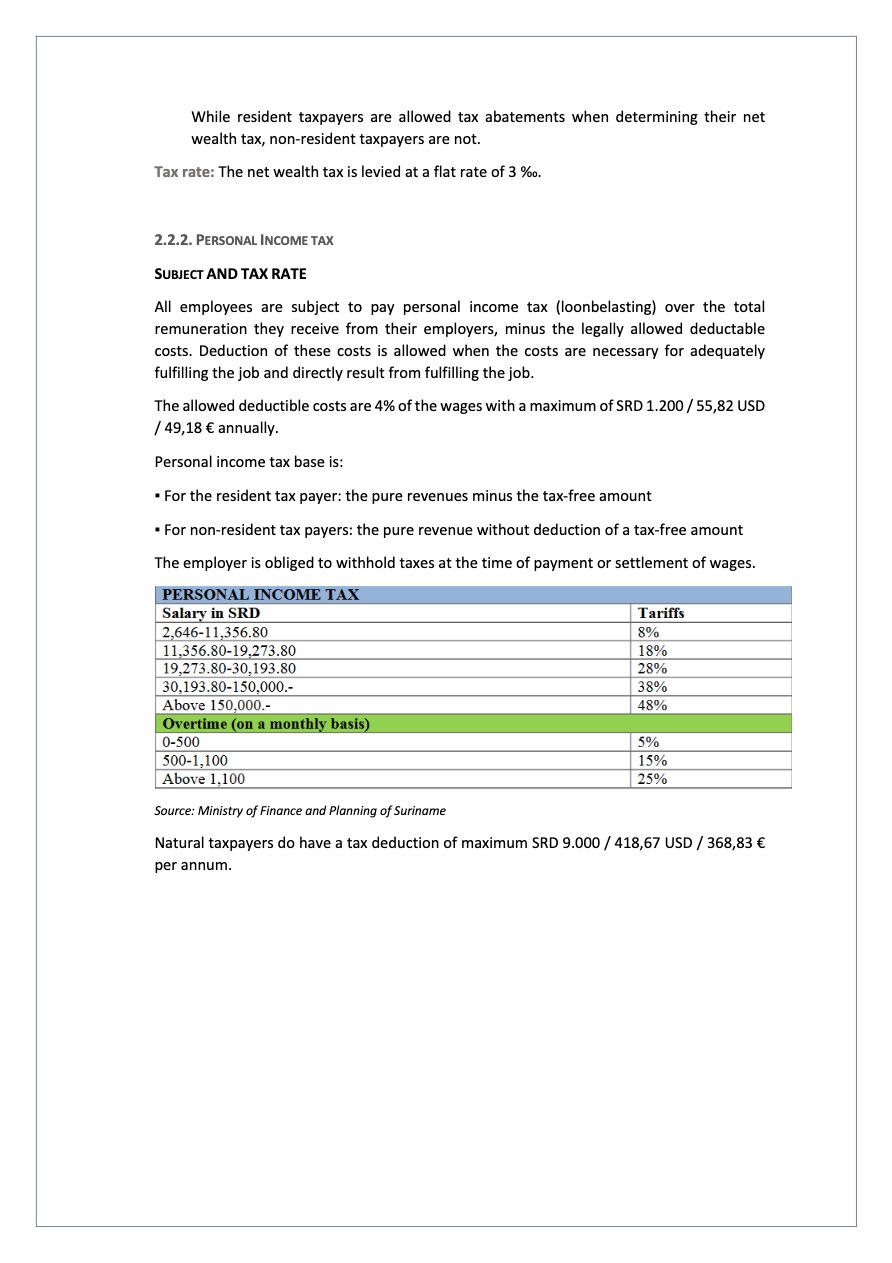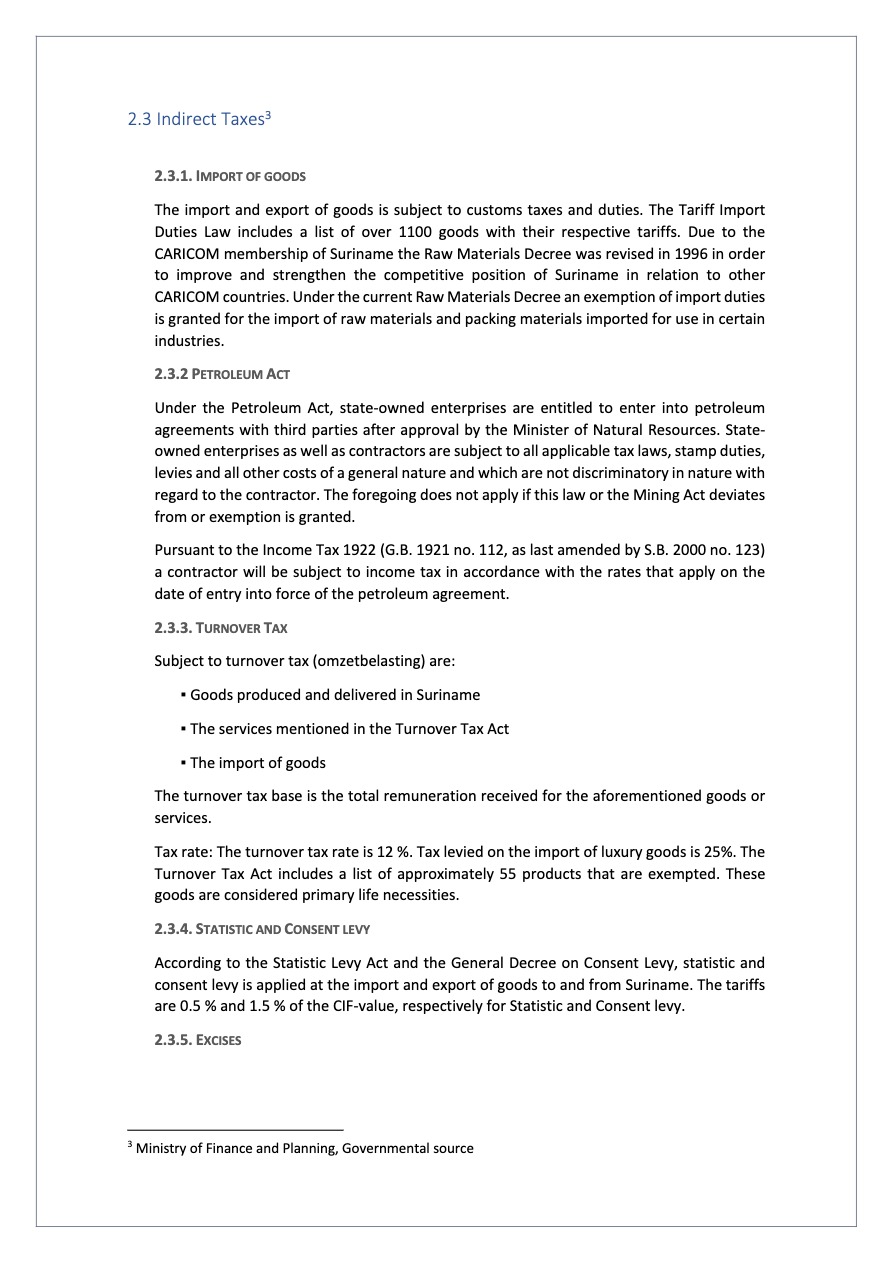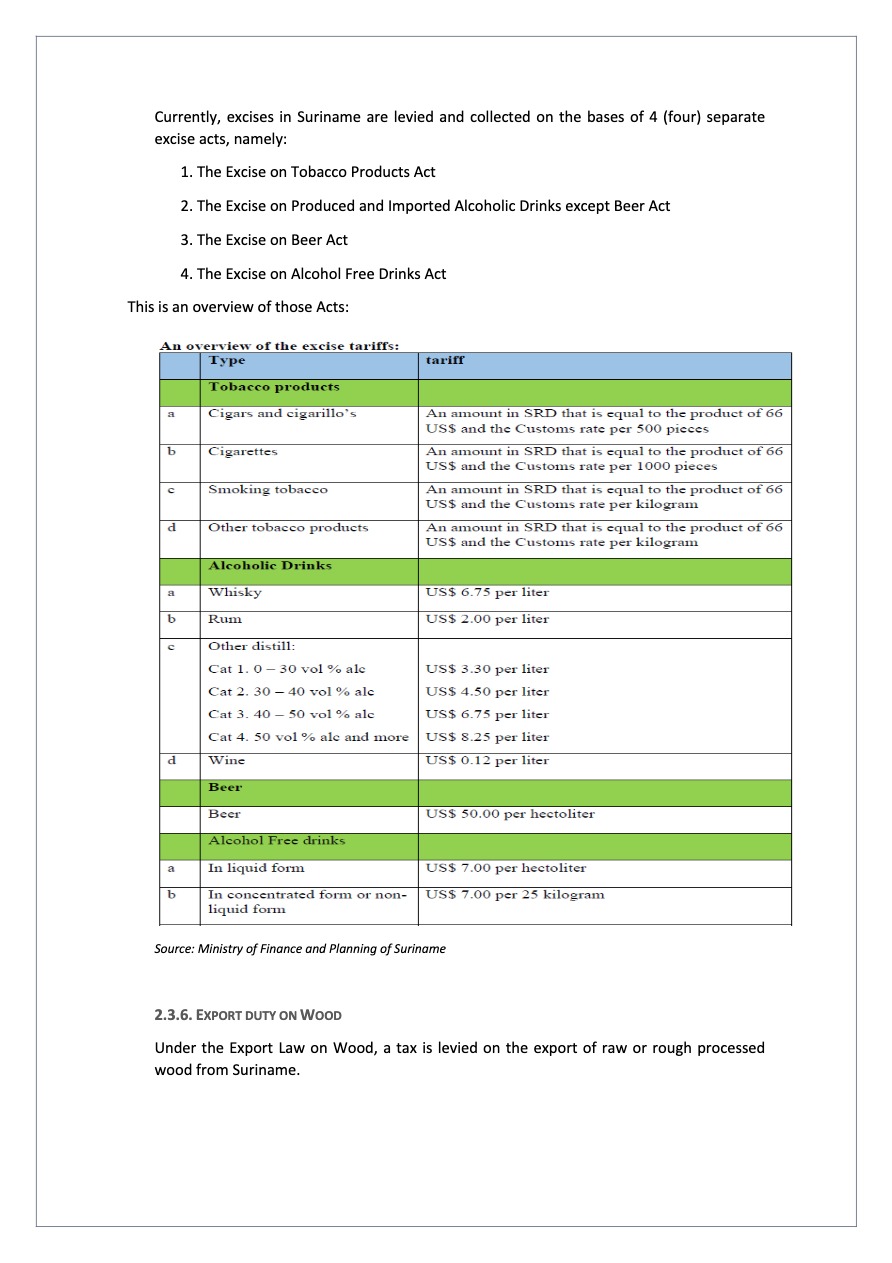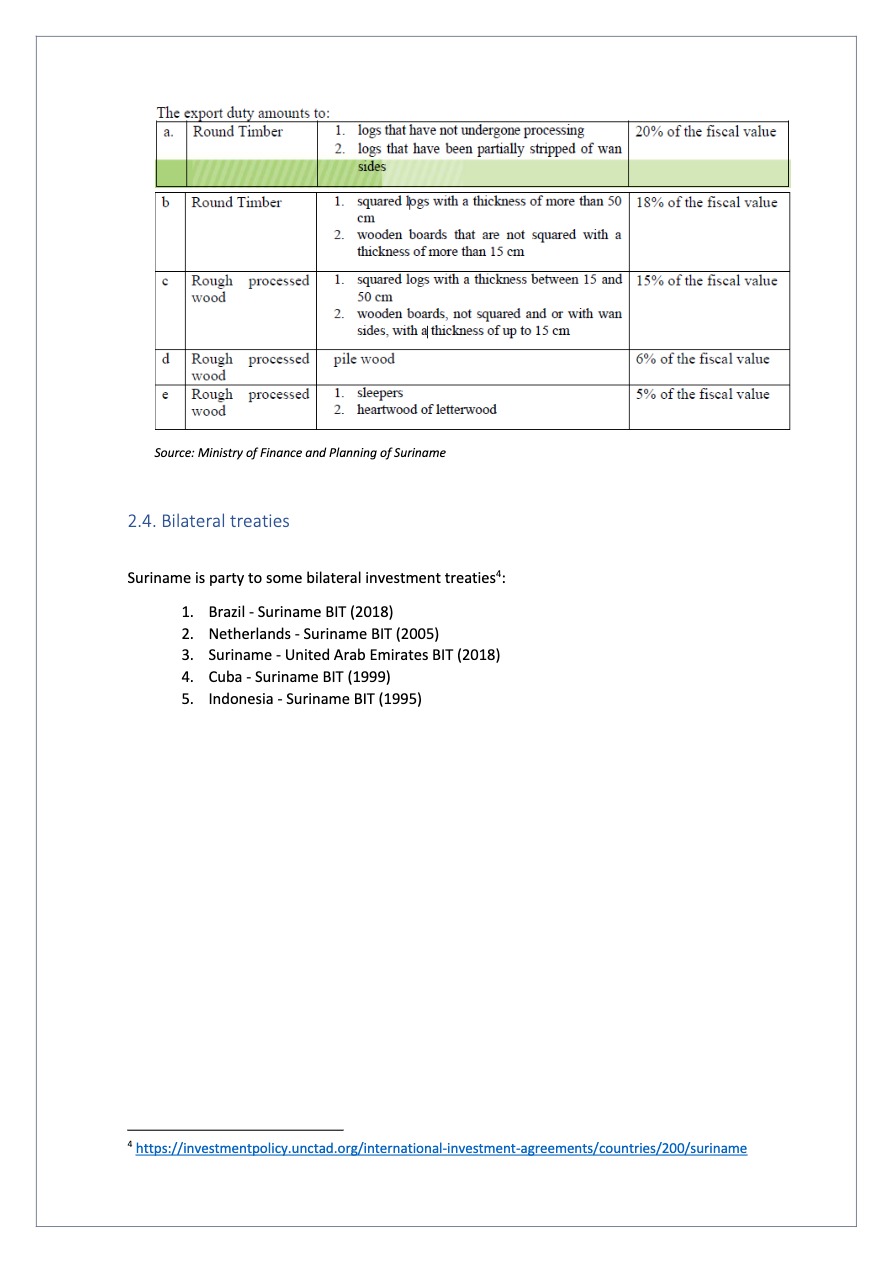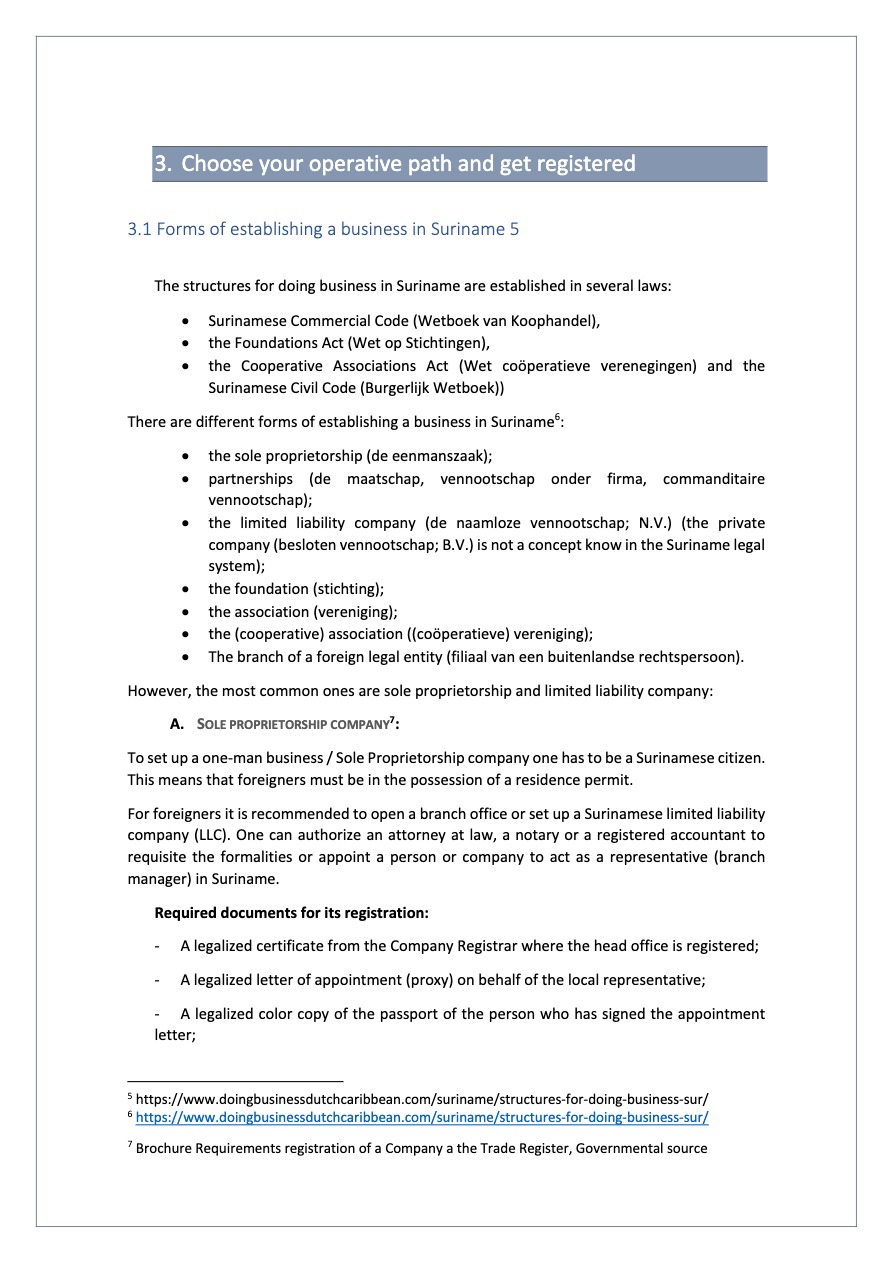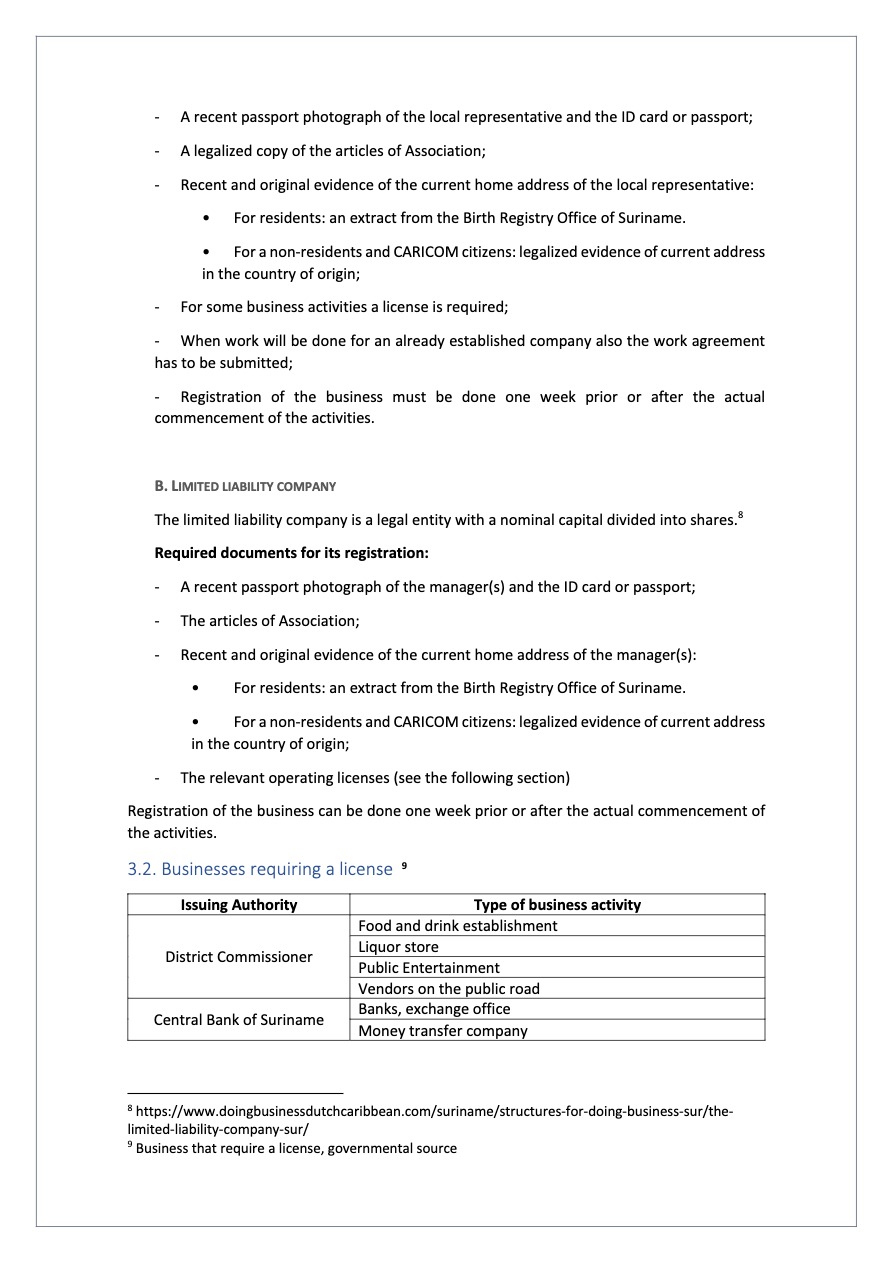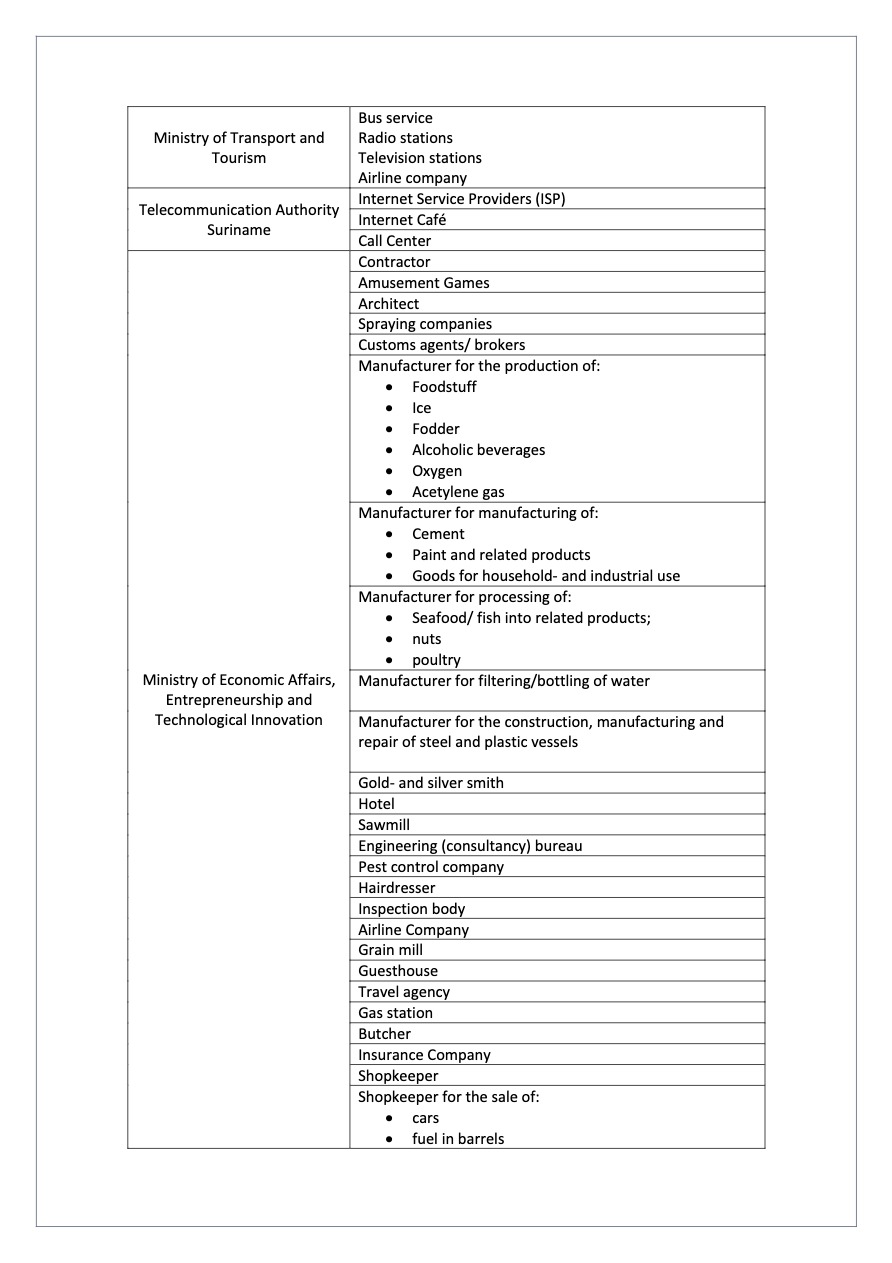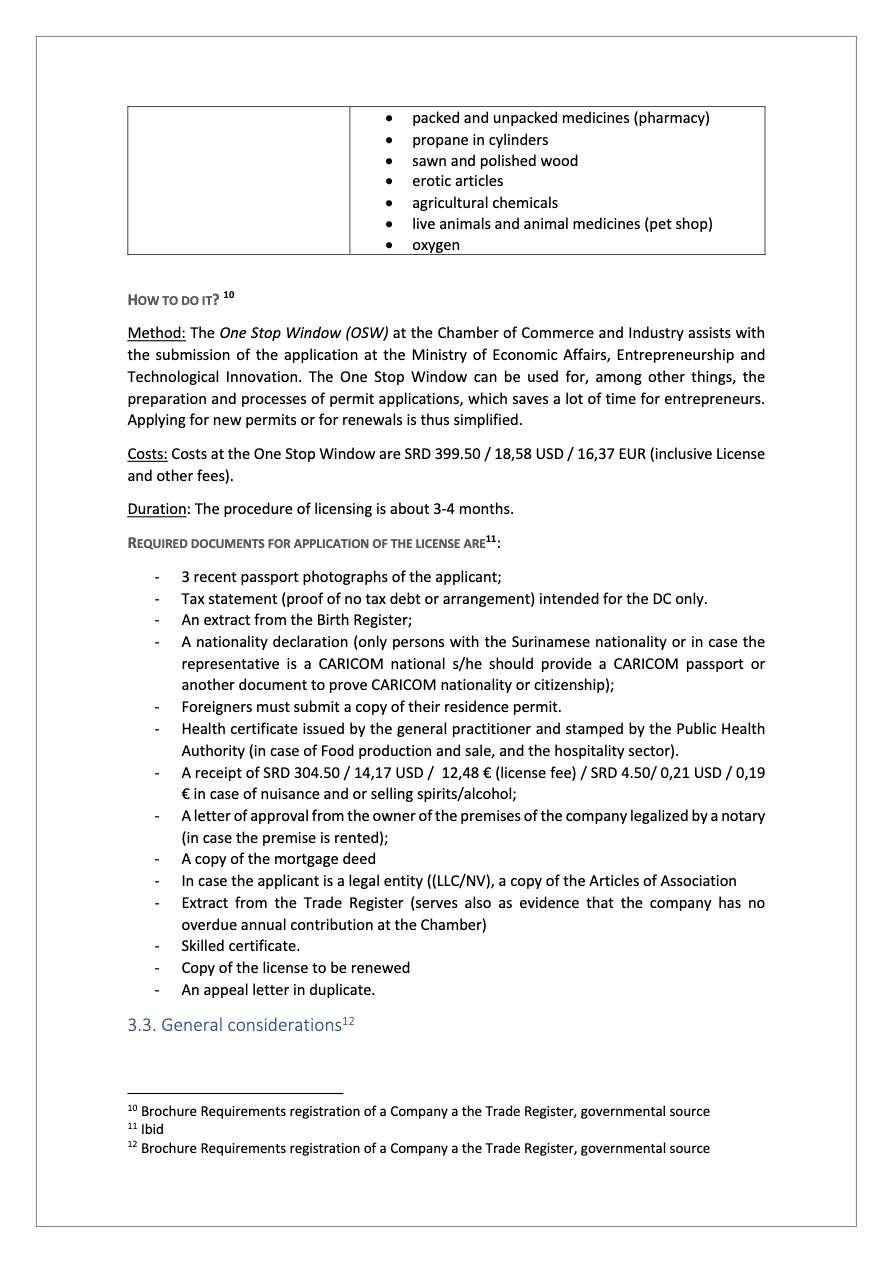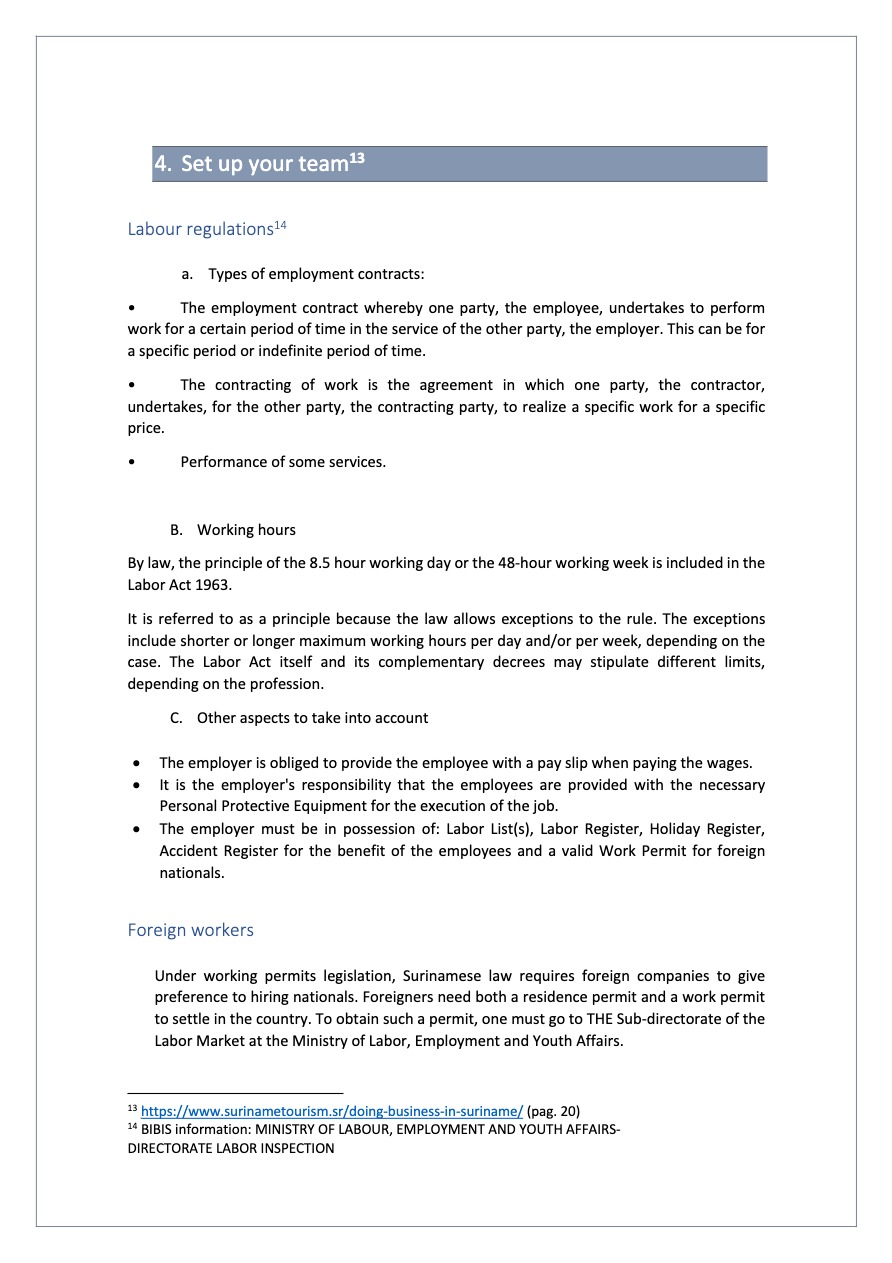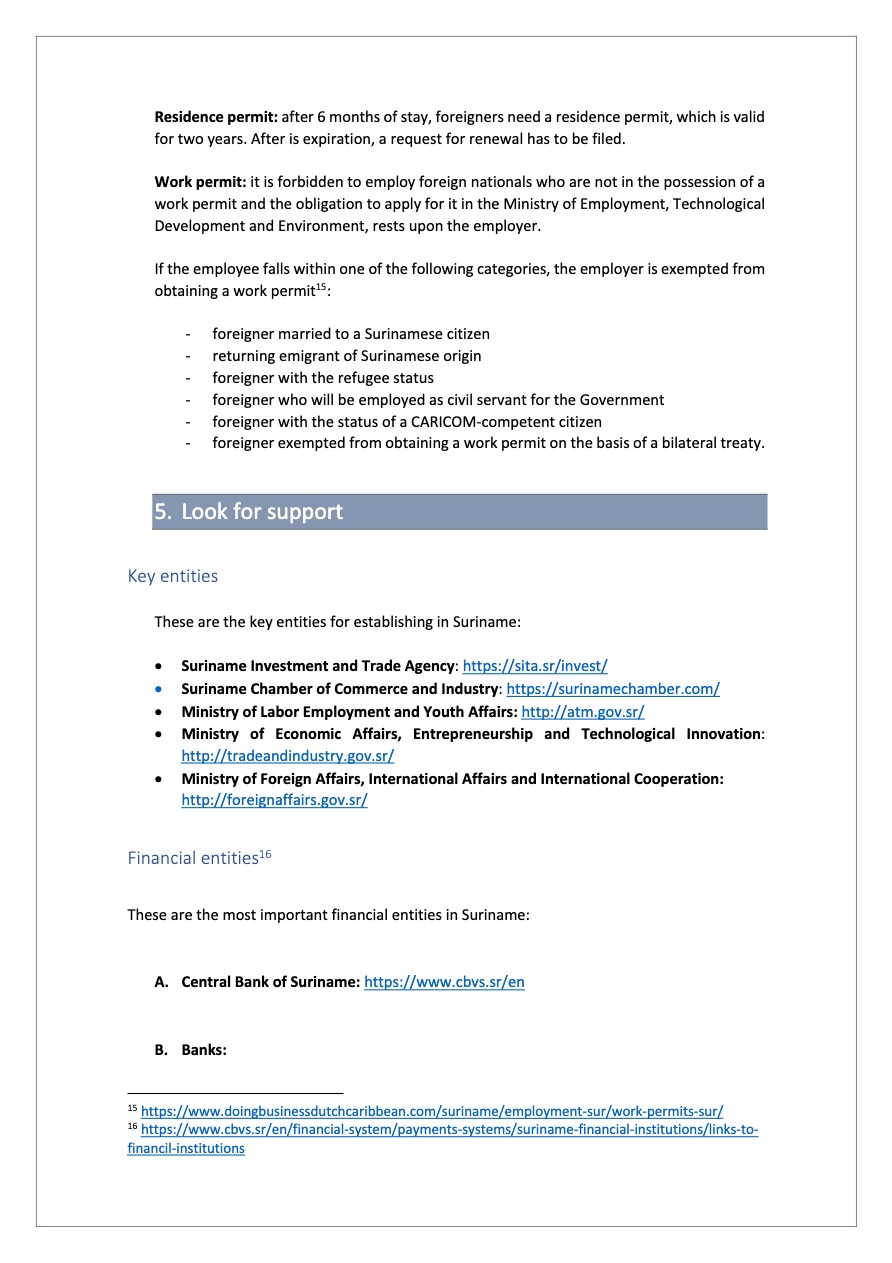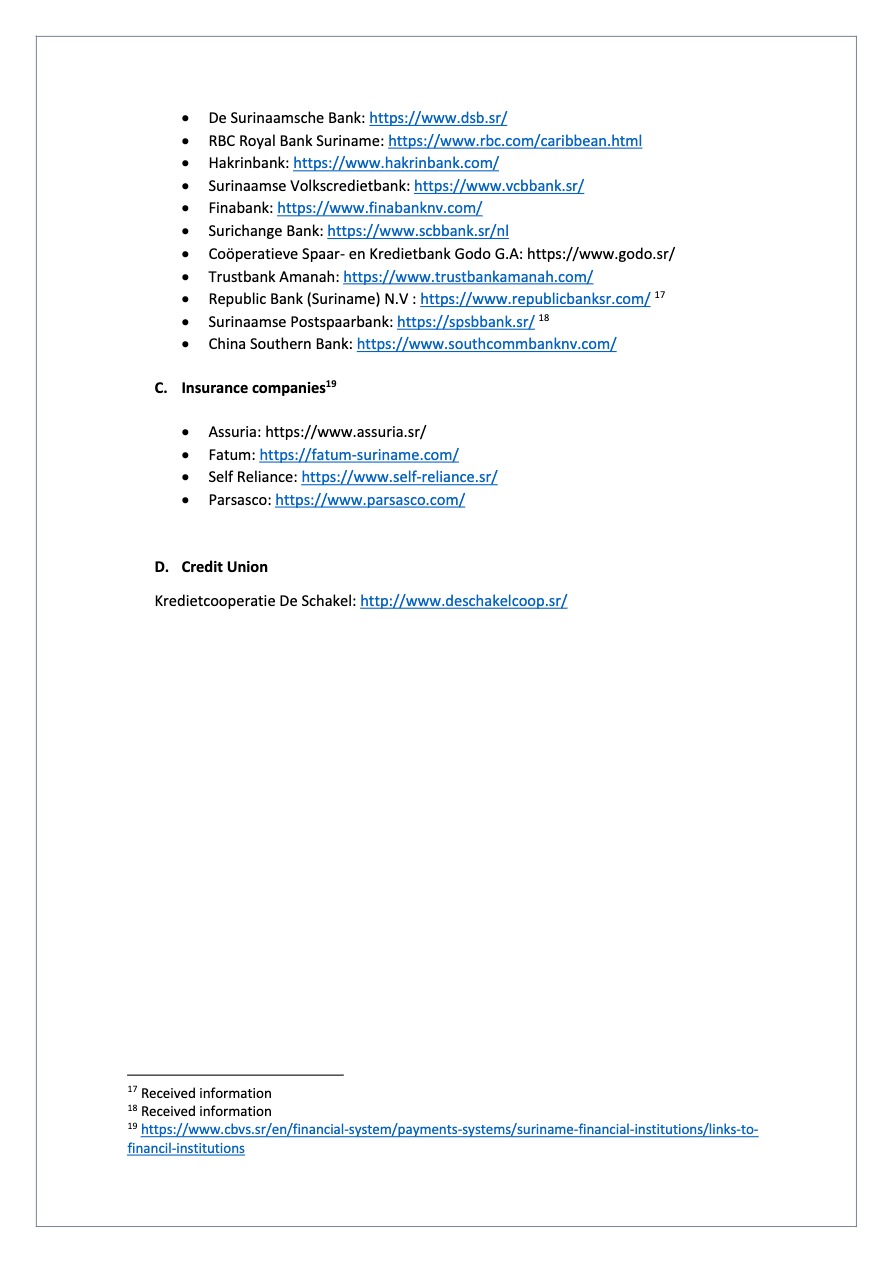
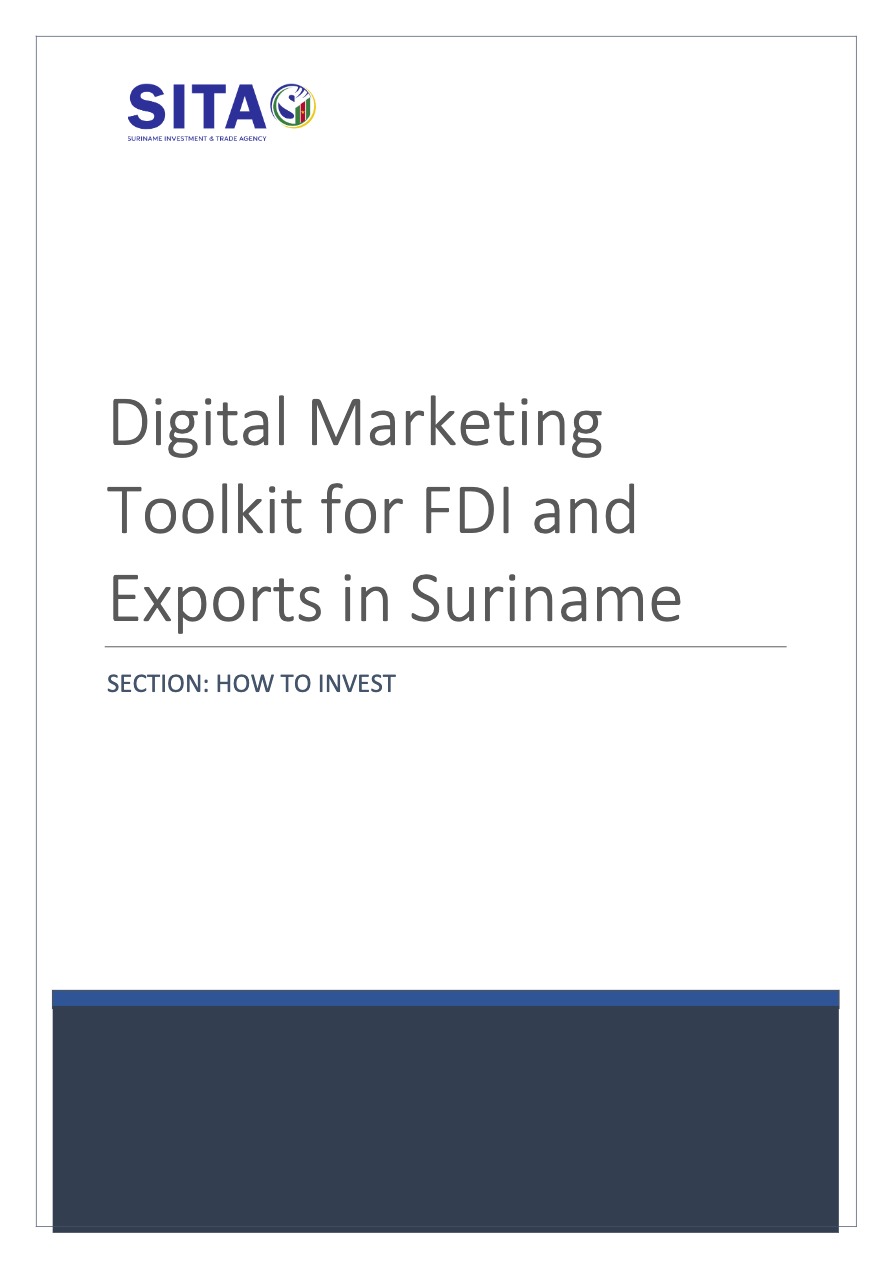
This investor roadmap consists of 5 steps. Select an option to see the information and following options for the next step.
The 2001 Investment Act is the Law governing the promotion of investments in Suriname.
It grants certain incentives for entrepreneurs who keep regular accounts on their operations (with annual closings) and who, in a year, invest in operating assets intended to be used within the framework of the enterprise, as long as the business belongs to one of the key sectors for the country:













The main incentives in force are the following ones:
A. FREE WRITE OFFS
When computing the profit enjoyed in a year for the profit of levying income tax, the amount of the investment (in operating assets) shall be depreciated arbitrarily if:
1. Above-mentioned general conditions apply
2. The investment in Surinamese guilders is at least the equivalent of USD5.000.
3. The request for application of this facility is submitted no later than 3 months after the date of the investment concerned.
B. EXEMPTION FROM INCOME TAX
The profit enjoyed in the commencement year of an enterprise (and the following 9 years) shall be exempted from income tax if:
1. the company is new and has profit
2. the company belongs to the key sectors, namely: agriculture, livestock, fisheries, aquaculture, mining, forestry, tourism (with the exception of the establishment and operation of casinos), industry, commerce, construction, services and professional transport.
3. No claim is made on the following facilities:





4. It must be a major investment.
5. Jobs must be created with the new company.
The general requirements still apply, and the value of the capital good must meet the following premises:
– a CIF-value of USD 7.500 (unless it’s an initial investment)
– In the case of capital goods that are associated with an initial investment, the combined value should be at least USD 500.000.
– In case of capital goods which will be used in the agriculture, horticulture and poultry sector and are associated with an initial investment, exemption of
import duties is given if the total value is at least USD 250.000 USD.
The details concerning these general exemptions as well as other specific exemptions can be consulted in the flipbook HOW TO INVEST.
The following direct taxes exist in Suriname:
The corporate tax: applied to both natural persons and legal entities, depending on their revenues. The tax for natural persons range from 0% to 48%, while the tax for legal bodies are of 36% or 46%, determined by the income.
The personal income tax: all employees are subject to pay personal income tax over the total remuneration they receive from their employers, minus the legally allowed deductible costs. The tax ranges from 8% to 48%, depending on the amount of the salary. Salaries with overtime are subject to a different range of tariffs.
All the details concerning direct taxes can be consulted in the flipbook HOW TO INVEST.
The import of goods: Tariff Import Duties Law includes a list of over 1.100 goods with their respective tariffs.
The petroleum act: under the Petroleum Act, state-owned enterprises are entitled to enter into petroleum agreements with third parties after approval by the Minister of Natural Resources. Pursuant to the Income Tax 1922, a contractor will be subject to income tax in accordance with the rates that apply on the date of entry into force of the petroleum agreement.
The turnover tax: Subject to turnover tax are 1) the goods produced and delivered in Suriname; 2) the services mentioned in the Turnover Tax Act and 3) the import of goods. The tax base is the total remuneration received for the aforementioned goods or services and the rate is 12% (25% for luxury goods). However, some products considered primary life necessities are exempted.
Statistics and consent levy: is applied at the import and export of goods to and from Suriname. The tariffs are 0.5 % and 1.5 % of the CIF-value, respectively for Statistic and Consent levy.
Excises: are levied and collected on the bases of four separate excise acts, namely: 1) Excise on Tobacco Products Act; 2) Excise on Produced and Imported Alcoholic Drinks except Beer Act; 3) Excise on Beer Act and; 4) Excise on Alcohol Free Drinks Act
Export duty on wood: a tax ranging from 5% to 20% (depending on the type of wood) is levied on the export of raw or rough processed wood from Suriname.
All the details concerning indirect taxes can be consulted in the flipbook HOW TO INVEST.
3.1 Forms of establishing a business in Suriname
There are different forms of establishing a business in Suriname:
However, the most common ones are sole proprietorship and limited liability company.
The details of sole proprietorship and limited liability companies can be consulted in the flipbook HOW TO INVEST.
Some types of business activities require a license that can be issued through the One Stop Window at the Chamber of Commerce and Industry, which assists with the submission of the application at the Ministry of Economic Affairs, Entrepreneurship and Technological Innovation. The costs at the One Stop Window are USD18,58 (inclusive License and other fees) and the procedure of licensing is about 3-4 months.
The details regarding the types of business activities that require a license and the documents required to get it can be consulted in the flipbook HOW TO INVEST.
Hire local talent
Three types of employment contracts exist:
By law, the principle of the 8.5 hour working day or the 48-hour working week is included in the Labor Act 1963, however, some exceptions to the rule exist.
The details regarding labor regulations can be consulted in the flipbook HOW TO INVEST.
Visa process information
Under working permits legislation, Surinamese law requires foreign companies to give preference to hiring nationals. Foreigners need both a residence permit and a work permit to settle in the country:
However, if employees meet some requirements, the employer is exempted from obtaining a work permit
The details regarding the permits for foreign workers can be consulted in the flipbook HOW TO INVEST.
Different types of public and private entities, ranging from Ministries to financial entities, can be key in your investment process. You can consult all their details in the flipbook HOW TO INVEST.



